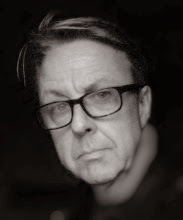 Released in 1979, Franc Roddam's screen adapatation of The Who's 1973 rock opera Quadrophenia was a landmark film. Criticised at the time for its scenes of violence, Quadrophenia was possibly the last great British teen rebellion movie and helped spark the Mod revival.
Released in 1979, Franc Roddam's screen adapatation of The Who's 1973 rock opera Quadrophenia was a landmark film. Criticised at the time for its scenes of violence, Quadrophenia was possibly the last great British teen rebellion movie and helped spark the Mod revival. Quadrophenia featured the cream of the hot young British talent from the late Seventies including Phil Daniels as Jimmy the Mod, Sting as the Ace Face, Leslie Ash as Steph, the great Ray Winstone, punk princess Toyah Willcox, Gary Holton, Timothy Spall, Phil Davis, Mark Wingett, Daniel Peacock, Gary Shail and John Altman (nasty Nick Cotton).
After the bloated theatrics of Ken Russell's Tommy, Quadrophenia was a breath of fresh air. Roddam wisely avoided Pete Townshend's complex four-way split personality (Quadrophenia) narrative and concentrated on the Mod vs Rocker battles of the 1960s.
As musical director, The Who's John Entwistle oversaw the sequencing of the soundtrack and pared down the original 1973 synthesiser drenched Quadrophenia album tracks so that they did not sound incongruous with the film's 1960's setting. However the Who's music adds punch to the title sequence where The Real Me accompanies Jimmy astride his accessory encrusted Lambretta making his way to a club as a gang of Rockers loom behind him. Another knockout scene shows a pilled up and mascara'd Jimmy out of his brain on the train to Brighton underscored by the titanic Who single 5.15. To give the film a period feel, a smattering of popular hits from the era including The Kingsmen's Louie Louie, The Cascades' Rhythm of the Rain and Booker T's Green Onions were scattered around the soundtrack.
Whilst it captures the spirit of the age, Quadrophenia does however contain a few visual gaffes. In one scene Jimmy gives Steph a lift on the back of his scooter where he changes gear constantly including slipping into first gear with no discernable jerks and a poster for the 1978 remake of Heaven Can Wait is clearly visible in the background. During a party scene, the album cover for The Who's A Quick One can been seen above a Dansette - an LP that would not be released until after the time the film was set. There is also a scene where an InterCity train not seen on British Railways until the next decade, thunders past Jimmy's garden shed window. These are minor quibbles because Quadrophenia still looks great and by capturing the zeitgeist in some ways echoed elements of the punk scene.
poster for the 1978 remake of Heaven Can Wait is clearly visible in the background. During a party scene, the album cover for The Who's A Quick One can been seen above a Dansette - an LP that would not be released until after the time the film was set. There is also a scene where an InterCity train not seen on British Railways until the next decade, thunders past Jimmy's garden shed window. These are minor quibbles because Quadrophenia still looks great and by capturing the zeitgeist in some ways echoed elements of the punk scene.
There's a palpable thrill and a sense of being part of the protective cocoon of a gang when a convoy of scooter mounted Mods invades Brighton. There's  also a great jazz club scene where Sting proves what an utterly crap dancer he is bobbing around like a deranged marionette to Louie Louie when Phil Daniels (mercifully) upstages him - priceless! The film like the movement it portray, created its own mythology to the extent that fans from all over the world still make pilgrimages to Brighton to visit the alleyway (off East Street) where Jimmy and Steph have a surrepticious knee trembler.
also a great jazz club scene where Sting proves what an utterly crap dancer he is bobbing around like a deranged marionette to Louie Louie when Phil Daniels (mercifully) upstages him - priceless! The film like the movement it portray, created its own mythology to the extent that fans from all over the world still make pilgrimages to Brighton to visit the alleyway (off East Street) where Jimmy and Steph have a surrepticious knee trembler.
It is interesting to note that another gang movie was on general release at the time in the form of The Warriors. When that film was released in the US it is said that gang fights erupted at screenings, leading UK cinemas to increase security at early showings. Of course it was hype and while The Warriors was entertaining with comic book violence, it was Quadrophenia that captured the imagination of post punk British youth in the late seventies and was a major call to arms in the revilatisation of the Mod movement in the late 70's.
"MODS" BBC RADIO 4, ARCHIVE HOUR DOCUMENTARY 
The BBC recently broadcast an excellent one hour documentary about the Mod Movement on its archive hour entitled Mods. Narrated by Phil Daniels, this well researched documentary covers Mod's origins and influences and features archive interviews with Mod prime movers including Pete Townshend, Andrew Loog Oldham and Carnaby Street monarch John Stephen. Mod's influence continues even today and it is fair to say that without Mod, Punk, Two-Tone and Britpop would not have happened in the way we know them.


No comments:
Post a Comment